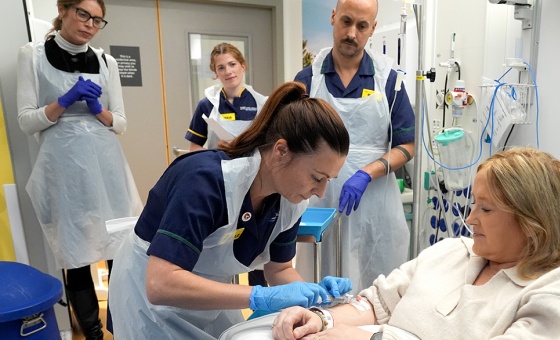This is the last article you can read this month
You can read more article this month
You can read more articles this month
Sorry your limit is up for this month
Reset on:
Please help support the Morning Star by subscribing here
RACE equality progress for probation workers and probationers over the past two years has been “disappointing,” a report reveals today — but unions have said privatisation is to blame.
HM Inspectorate of Probation (HMIP) has published its report reinspecting the work undertaken and progress made by the service to promote race equality for people on probation and staff.
It last looked at the area in 2021, where it found that it must “reset and raise” the standard of work with ethnic minority service users and staff urgently.
Today’s report found that there is still no national strategy that sets out expectations and plans for service delivery to minority ethnic people on probation.
And there is little evidence that probation staff had spoken with people on probation about their ethnicity, culture, religion, and experiences of discrimination.
Planning and delivery of probation services were worse for minority ethnic people on probation than for white people, the report said.
Chief Inspector of Probation Justin Russell said: “It’s clear that race equality – for people on probation and probation staff – remains a work in progress.”
Probation workers’ union Napo assistant general secretary Ranjit Singh said the service needs to understand the specific needs and backgrounds of individuals.
He told the Star: “It is disappointing that HMIP has again identified significant gaps and a lack of specific tailored services.
“Before the disaster of Transforming Rehabilitation, probation worked with many local voluntary and community-based groups focused on engaging specifically with black, Asian and minority ethnic service users.
“These working relationships were lost as a result of privatisation.
“What this report shows is that [former justice secretary] Chris Grayling’s disastrous privatisation experiment by bringing probation into the Civil Service is not the answer.
“Probation must be released from the Civil Service and returned back to local democratic control so it can once again deliver locally responsive services.”
Mr Singh also hit out at the service’s “continued failure” to protect staff from racist and abusive behaviour, which has been highlighted by research from unions that found it to be institutionally racist.
“We call on the Probation Service to acknowledge the scale of the problem and to continue to work with the unions to eliminate discrimination from the service,” he added.
Phil Copple, Director General of HM Prisons and Probation Service Operations, said:“We are determined to stamp out discrimination and have made real progress including increasing diversity training for staff and launching an action plan to tackle racial discrimination and disproportionality across the organisation.“
It is clear that that there is still more to do and that is why we are developing further discrimination awareness training, reforming the risk-assessment process to eliminate any bias and continuing to expand the rehabilitation programmes available to ethnic minority offenders.”











